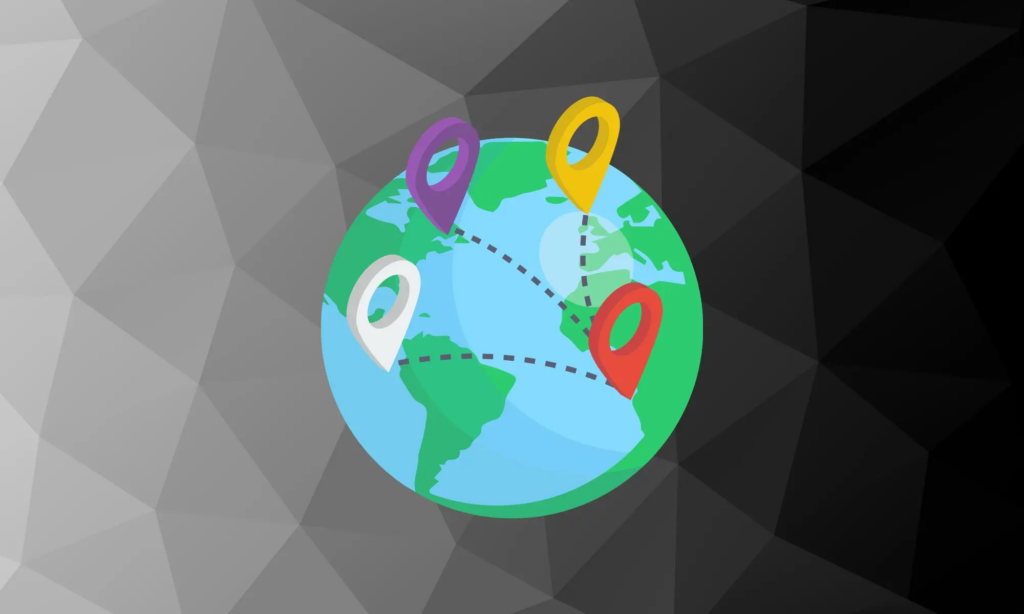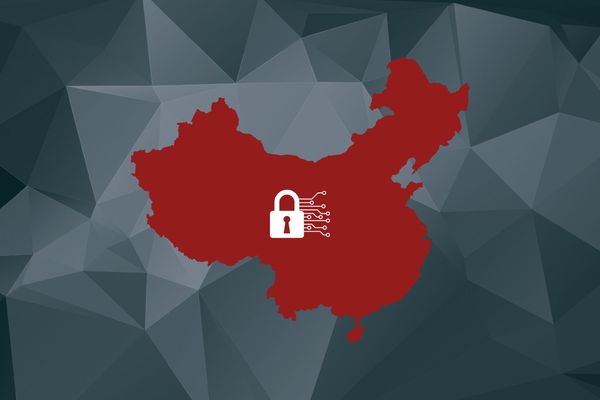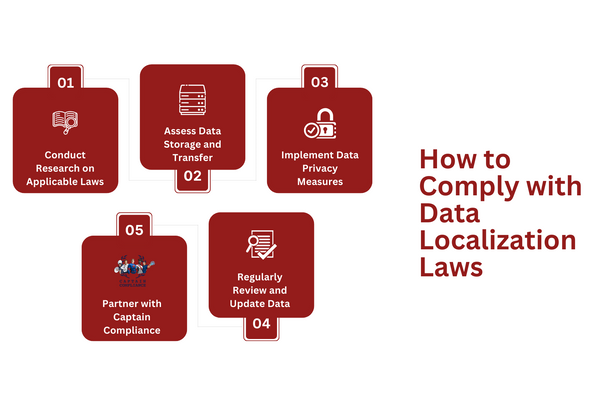
Data Localization describes where a business stores data and there are different rules in different countries. Every country has its own rules about where businesses can store data. These rules are called data localization rules. But what are the data localization laws by country? For businesses that work in many countries, understanding these laws is very important.
This article will explain these laws in simple words. We’ll talk about why they matter and what businesses need to do. If you run a business or plan to start one, this guide will help you.
Let’s dive right in.
Key Takeaways
- Different countries have their own rules about where businesses should store digital data. If you’re a business operating in multiple countries, it’s crucial to understand and follow these data localization laws.
- Countries vary in their data privacy regulations. While places like China and Russia have strict rules requiring data to be stored within their borders, others like the EU focus on data protection standards, and some countries are still shaping their policies.
- Data laws and technology are always evolving. Businesses need to regularly review their data practices, ensure they’re compliant, and consider partnering with experts like Captain Compliance to navigate the complexities.
Data Localization Explained

Data localization is where companies keep their data. Think of it like you’ve got an important box of papers. Some countries say, “Hey, if you want to do business here, you have to keep that box in our country.” That’s data localization in a nutshell.
So why do countries have these kinds of rules?
Well, around 75% of countries have some type of data localization rule, and they want to make sure people’s personal details are safe. They also want to create jobs in their own country and be sure businesses follow their laws. For businesses, this means they need to know where they can keep their data and how to keep it secure.
It’s kind of like playing a game where every country has its own rules. And if businesses want to win, they need to know and follow these rules. It’s not always simple, but it’s super important.
Data Privacy Laws by Country
Have you ever wondered how different countries handle data privacy? It’s a mixed bag, with some countries having super strict rules and others being a bit more relaxed. Let’s dive in and see what countries fall into what category.
The Strictest
China’s got some really strict rules going on, at least for certain businesses. If you’re holding any info on regular Chinese citizens, you have to keep it in the country – they don’t want it going anywhere else, and so if you’re trying to operate there, you better make sure your data about Chinese residents is in China, not somewhere else.
Russia put data localization laws on the books back in 2015. If you’re not storing Russian people’s personal data in Russia itself, you can get slammed with some huge fines – $31,000 to $280,000. It’s absolutely crucial to have a local data hub if you want to avoid those penalties.
Then there are places like Brunei, Nigeria, and Vietnam. They all have crystal clear policies saying data about their own citizens needs to be kept inside their borders, with no exceptions. It’s completely non-negotiable for any business trying to operate in those countries.
Strict
If you do business in the European Union, you’ve probably heard GDPR tossed around a lot. The GDPR is the EU’s way of showing they care about protecting people’s personal data. It’s not just a bunch of rules – it’s a real commitment to keeping EU residents’ data safe.
The GDPR sets standards for how to handle private data – how to collect it, store it, use it – the whole deal. But that’s not all. It also has guidelines about transferring data outside the EU.
So, if you want to move data from France to a country outside the EU, you need to double-check the GDPR rulebook first.
Partial
Belarus isn’t as strict as some other countries when it comes to data localization laws. But businesses still have to keep an eye out for specific sectors or types of data that have tighter regulations.
Kazakhstan says businesses have to store the personal data of their citizens inside the country – no exceptions. But not all types of data fall under this umbrella, so it’s important to know the nitty-gritty details.
Malaysia’s Personal Data Protection Act and Indonesia’s PDP lays out how personal data should be handled. It doesn’t outright enforce data localization, but businesses better make sure data’s protected when it’s transferred outside the country.
India’s still figuring out its approach to data localization. They’ve got some rules in place, like requiring data localization on notification, but they don’t have a hard and fast rule for all businesses. It is worth noting that financial data has to be stored locally, but other kinds of data might have more wiggle room.
South Korea probably has the one of the strictest data protection laws in Asia. While they don’t demand strict data localization, there are tight rules about sending personal data outside the country. Businesses need to get the green light before making those kinds of transfers.
Mild
Argentina really focuses on protecting individuals’ rights when it comes to their information. Companies there have some wiggle room, but they need to be really careful when they’re moving data internationally.
Brazil’s General Data Protection Law (LGPD) is similar to the EU’s GDPR. It tells businesses how they’re allowed to use and process the personal info they collect. They don’t have to keep all the data inside Brazil, but they need to get clear permission and have good data security.
In Colombia, there are some rules about international data transfer. Companies can send data to other countries, but only if the person says it is okay and the country they are sending it to also has good laws about protecting data.
Peru’s main focus is on the rights of the person to whom the data belongs. Businesses can transfer information internationally, but only to places that protect data as much as Peru does or better.
Uruguay actually meets the standards set by the EU for protecting data. Companies there can share data globally, but they still need to follow all the local rules, especially with more sensitive information.
Specific Industries
In Australia, businesses in the phone and health areas have special rules. They have a law called the Australian Privacy Principles (APPs) that says this kind of data about Australians should stay in Australia.
For Canada, New Zealand, Taiwan, Turkey, and Venezuela, it’s a bit different. They have rules, but only for certain types of businesses. If you have a business in areas like phones, health, or money in these countries, you need to know their rules. They want to make sure people’s information is safe.
Common Countries Data Localization Requirements
Different countries have different ideas about how companies should manage the personal info of their customers. These data localization rules are all over the map, depending on where you are. Let’s take a closer look at what some countries require when it comes to data.
European Union (EU)
The European Union has a set of rules called the General Data Protection Regulation or GDPR.
This isn’t just any rulebook; it’s a major one that businesses in the EU need to follow closely. Why? Because it’s all about how businesses should treat the personal data of people in the EU.
Now, the GDPR doesn’t exactly tell businesses that they must keep all data inside the EU. But, because of how strict it is, many businesses decide to keep their data within the EU just to be on the safe side. It’s worth noting that they do restrict some international data transfers.
Here’s the thing: the GDPR is all about making sure people’s data is safe and treated right. It talks about things like getting permission from people before using their data, ensuring safe cross-border data transfer, and making sure that data is kept safe. So, if you’re a business that has data from people in the EU, you need to be super careful.
This means thinking about where you keep that data and how you move it around. And if you ever decide to move that data outside the EU, you need to make sure the place you’re moving it to treats data just as well as the EU does.
China
With the introduction of China PIPL, China is really serious when it comes to people’s data. They’ve got super clear laws saying that if your business has any details about Chinese citizens, you need to keep all that info inside China.
And it’s not just obvious sensitive data like health and financial records. It’s any piece of data that could tell you something about someone.
The reason China does this is because they think that keeping people’s data inside their borders is the best way to protect their citizens’ privacy. It’s a national security thing for them, and they don’t want other countries getting access to important info about Chinese people.
So, what does this mean for businesses? Well, first off, if you’re gathering data from Chinese customers, you’ll probably need to set up servers or storage in China.
This can be kind of a pain, especially if you’re a foreign company. But you need to follow the rules, or you could be looking at some serious consequences.
Brazil
In Brazil, the Lei Geral de Proteção de Dados (LGPD) is the guiding light when it comes to data protection.
But it isn’t just about collecting people’s data. The law also talks about storing and transferring data, and it doesn’t directly say you have to keep all the data inside Brazil, but it certainly wants to protect the data, especially if it’s gonna be sent to another country.
That’s a big deal because data can be vulnerable when it’s transferred around, and this law tries to lower those risks.
If you’ve got a business in Brazil or you’re working with Brazilian people’s info, you have to understand and follow the LGPD. It’s not just some law – it shows people you care about their privacy and keeping their data secure. Do what the law says, and folks will trust you more.
India
The 2023 law only states that the government may restrict flows to certain countries by notification unless you’re in the financial industry. Then, you’ll need to store data locally.
It’s part of India wanting to make sure sensitive money stuff doesn’t get hacked or misused. But it isn’t just about finances. With the evolving India data localization regulations, India is currently working on and tweaking its bigger data protection plans.
Even though the rules right now don’t say all data has to be stored in India, there’s been talk about expanding how much needs to be kept locally. So businesses should keep up with how data storage rules are shaping up in India.
While some data, like money matters, is clear to keep in Indian guidelines, other kinds of data might still have some flexibility on where it can be stored for now. But with ongoing debates around the Personal Data Protection Bill and other related regulations, companies should be ready for potential changes.
Russia
Russia has taken a firm stance on data localization, emphasizing the importance of keeping its citizens’ data within its borders.
Federal Law No. 242-FZ, which came into effect in 2015, mandates that operators processing personal data of Russian citizens must ensure that the recording, systematization, accumulation, storage, clarification, and extraction of such data is done using databases located in Russia.
This Russian data law basically says that any business gathering personal details from Russian people – names, addresses, phone numbers, etc. – has to store that stuff on servers inside Russia, and it’s not a loose recommendation.
It’s a hard rule. If you don’t follow it, you can get fined or even prohibited from operating in Russia.
The reasoning behind the law has a couple of parts. Partly, it’s about protecting Russians’ personal data from being misused or hacked. Partly, it’s about making sure the Russian authorities can oversee the data and enforce their privacy regulations on it.
So, for any business working in Russia or dealing with Russian customers, this law is a big deal. It may mean setting up new data centers in Russia or making deals with local providers to store data there. Either way, companies have to comply if they want to keep operating.
How to Comply with Data Localization Laws

Data is a big deal for companies nowadays. It’s a powerful tool that can really give them an edge. But that power means they need to be careful, too, and countries are getting stricter about protecting people’s privacy.
So, businesses need to adapt their compliance framework and change how they handle data to follow the new rules.
Figuring out all the different data localization laws can get confusing fast. It’s like a maze trying to keep it all straight. There’s no need to stress, though! We’re here to walk you through it step-by-step.
Conduct Research on Applicable Laws
Before making any moves, it’s crucial to understand the laws that apply to your business. Different countries have different rules. Spend time researching the specific data localization laws of the countries where you operate. This will give you a clear picture of what’s expected.
Assess Data Storage and Transfer Practices
Once you know the rules, take a look at how you’re storing and transferring data. Are you keeping data within the required borders? Are your data transfers compliant? By assessing your current practices, you can spot any areas that might need changes.
Implement Data Privacy Measures
Protecting information goes way beyond just where you put it. You have to make sure you’ve got solid security in place, too.
That could be encoding it, using secure ways to move it around, or doing regular checkups to make sure nothing’s messed up. And don’t forget, this isn’t only about following the rules, it’s about keeping your customer’s trust intact.
Regularly Review and Update Data Practices
Laws change. Technology changes. And businesses change. This means you can’t just set your data practices and forget about them. Regularly review and update your practices to ensure they stay compliant and effective.
Partner with Captain Compliance
Figuring out all the different data localization laws out there can be super confusing and frustrating for any business. But hey, you don’t have to figure it out alone! If you’re looking to outsource compliance, our team at Captain Compliance has your back.
We offer top-notch data protection compliance services and know the ins and outs of data laws across the world. Our experts have been doing this for a long time and can help make sense of everything.
We provide comprehensive data compliance solutions and don’t just tell you what to do either. We work with you to create a compliance plan tailored to your specific needs so you can keep growing your business without worrying about compliance.
With Captain Compliance on your side, offering the best compliance solutions, you can be sure your data practices are compliant and safe.
Closing
Data localization laws are a big deal these days for any business. After reading this, you’re probably thinking about what your company needs to do next to stay on the right side of these regulations. How can you make sure you’re playing by the rules so your business doesn’t get into trouble down the road?
This is where Captain Compliance, a leading corporate compliance agency, can help and is an expert at guiding companies through the messy world of data localization requirements.
We’re totally focused on giving you the information and solutions you need to keep your data practices up to global standards. With our top-tier compliance services by your side, you can relax knowing your business is compliant and ready for anything.
So, as you’re planning out your next steps, think about teaming up with Captain Compliance. Together, we can make sure your business checks all the boxes legally and is all set up for success in today’s digital marketplace. So, reach out to us today!
FAQs
What Are Data Localization Laws by Country?
Data localization laws dictate where businesses can store digital data in different countries. These laws ensure data privacy and security for citizens.
Want to dive deeper? Check out our comprehensive guides here!
Why Are Data Localization Laws Important for Businesses?
These laws are crucial because non-compliance can lead to hefty fines and legal issues. Plus, understanding them builds trust with customers and partners.
Discover the business benefits of understanding data localization in this article.
Are There Any Exceptions to Data Localization Laws?
Some countries allow exceptions based on the type of data or industry. However, it’s essential to know the specifics of each country.
Want to learn more, reach out to us!
How Can Businesses Stay Compliant with Varying Laws?
Regular research, data assessments, and partnering with experts like Captain Compliance can help businesses navigate these laws.
If you want to stay compliant with data localization requirements, we’ll help!